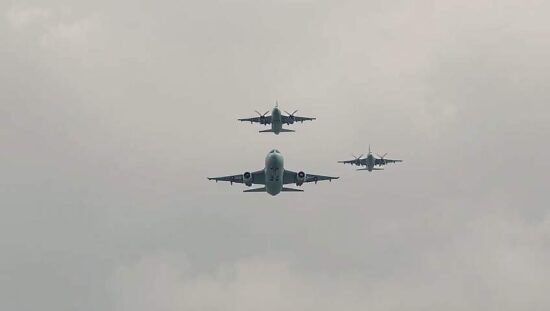Lithuania accuses Russia of airspace violation, escalating tensions in the Baltic region.
Lithuanian armed forces reported a deliberate intrusion into its airspace on Thursday by two Russian aircraft originating from the Kaliningrad region. The incident, occurring around 18:00 local time, saw a Sukhoi Su-30 multirole fighter and an Ilyushin Il-78 aerial refuelling tanker penetrate approximately 700 meters into Lithuanian territory near the city of Kybartai before departing after roughly 18 seconds.
The incursion is being interpreted by analysts as a calculated move by Moscow, likely intended to signal a continued display of force and test NATO’s response capabilities in the strategically vital Baltic Sea region. The Su-30, a long-range interceptor as well as a multirole fighter, raises concerns about potential offensive capabilities demonstrated by the Russian action. The Il-78 tanker’s presence suggests the Su-30 may have been undertaking aerial refueling exercises, further implying pre-planned and coordinated operations.
In response to the violation, two Spanish Eurofighter Typhoon fighter jets, engaged in a routine NATO air policing mission, were scrambled and dispatched to the area. Additional patrols were subsequently conducted over the site, underscoring the heightened alert status among NATO forces.
This latest incident follows a concerning pattern of repeated airspace violations by Russian aircraft throughout the Baltic states in recent months. Estonia reported similar intrusions by Russian combat jets in September and earlier in the year, analogous events transpired. Critics argue these actions are not random occurrences but are carefully orchestrated provocations intended to destabilize the region and undermine NATO’s collective security guarantees. While NATO has consistently condemned these actions, the frequency and boldness of the Russian incursions are prompting renewed scrutiny of existing response mechanisms and the potential need for enhanced deterrence measures. The incident highlights the delicate geopolitical balance in the Baltics and intensifies debates surrounding Russia’s intentions and the ongoing need for vigilance among NATO allies.





